Pence Likens Election Reform to Capitol Riots
It doesn't add up.
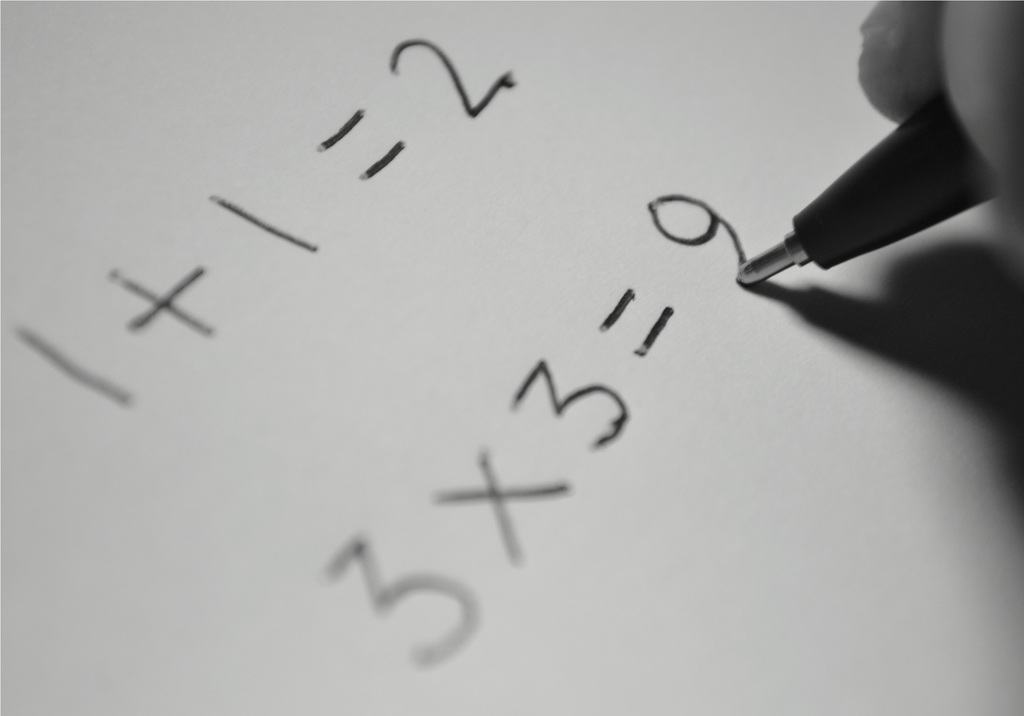
The Washington Post has given former Vice President Mike Pence op-ed space to argue “Jan. 6 was a power grab. So is busting the filibuster to nationalize elections.” The essay is not quite as insipid as the title suggests.
It starts well enough:
Now that the anniversary of Jan. 6 has come and gone, some of us who lived through that tragic day in 2021 are getting a clearer picture of what was and is at stake. On Jan. 6, an angry mob ransacked the Capitol, largely to try to get Congress and me, as the president of the Senate, to use federal authority to overturn results of the presidential election that had been certified by all 50 states.
Lives were lost and many were injured, but thanks to the selfless and courageous work of law enforcement, the Capitol was secured, and Congress was able to reconvene the very same day and complete its work under the Constitution and laws of the United States.
But that was just throat-clearing. The pivot:
In the year since that fateful day, states across the country have enacted measures to try to restore confidence in the integrity of our elections while ensuring access to voting for every American. Georgia, Arizona and Texas have led the way with common-sense reforms, such as requiring verifiable identification on absentee ballots and using cameras to record ballot processing.
And then the thesis:
Despite this steady progress of state-based reforms, now come President Biden and Senate Democrats with plans to use the memory of Jan. 6 to attempt another federal power grab over our state elections and drive a wedge further into our divided nation.
Their plan to end the filibuster to allow Democrats to pass a bill nationalizing our elections would offend the Founders’ intention that states conduct elections just as much as what some of our most ardent supporters would have had me do one year ago.
Under the Constitution, elections are largely determined at the state level, not by Congress — a principle I upheld on Jan. 6 without compromise. The only role of Congress with respect to the electoral college is to “open, present and record” votes submitted and certified by the states. No more, no less. The notion that Congress would break the filibuster rule to pass a law equaling a wholesale takeover of elections by the federal government is inconsistent with our nation’s history and an affront to our Constitution’s structure.
Let’s leave aside whether the state-level reforms in question are really “common-sense,” let alone “ensuring access to voting for every American.” Or whether the provisions supported by Biden and most Congressional Democrats are more desirable. That’s at least debatable.
But the sleight-of-hand at work here is absurd. It’s true that the original Constitution reserved much of the power over elections to the several states. But the Elections Clause in Article I also gave Congress significant authority:
The Times, Places and Manner of holding Elections for Senators and Representatives, shall be prescribed in each State by the Legislature thereof; but the Congress may at any time by Law make or alter such Regulations
Pence’s description of the original working of the Electoral College is largely right:
The Electors shall meet in their respective States, and vote by Ballot for two Persons, of whom one at least shall not be an Inhabitant of the same State with themselves. And they shall make a List of all the Persons voted for, and of the Number of Votes for each; which List they shall sign and certify, and transmit sealed to the Seat of the Government of the United States, directed to the President of the Senate. The President of the Senate shall, in the Presence of the Senate and House of Representatives, open all the Certificates, and the Votes shall then be counted.
There’s also a provision for Congress to choose the President itself if there’s no Electoral College winner:
The Person having the greatest Number of Votes shall be the President, if such Number be a Majority of the whole Number of Electors appointed; and if there be more than one who have such Majority, and have an equal Number of Votes, then the House of Representatives shall immediately chuse by Ballot one of them for President; and if no Person have a Majority, then from the five highest on the List the said House shall in like Manner chuse the President. But in chusing the President, the Votes shall be taken by States, the Representatives from each State having one Vote; a quorum for this Purpose shall consist of a Member or Members from two thirds of the States, and a Majority of all the States shall be necessary to a Choice. In every Case, after the Choice of the President, the Person having the greatest Number of Votes of the Electors shall be the Vice President. But if there should remain two or more who have equal Votes, the Senate shall chuse from them by Ballot the Vice-President.
But, as Pence surely knows, the Framers contemplated state elites simply choosing the candidate they wanted for President and Vice President. There was no “election” in the sense we think of it today.
Of course, the Constitution hasn’t stood still since it was written in 1787. Amendment XII (1804), Amendment XIV (1868), Amendment XV (1870), Amendment XVII (1913), Amendment XIX (1920), Amendment XX (1933), Amendment XXII (1951), Amendment XXIII (1961), Amendment XXIV (1964), and Amendment XXVI (1971) all change the conditions of voting in some manner.
Congress has broad power, especially under the 14th and 15th Amendments as interpreted, to regulate elections, especially those for federal offices. It’s true that the authority is much clearer with respect for Congressional offices than for the Presidency. But, as a 2001 GAO report notes,
The Supreme Court and federal appellate courts have construed Congress’ authority to regulate presidential elections as being broader than merely regulating the time of choosing presidential electors. However, as discussed below, the precise parameters of Congress’ authority to pass legislation relating to presidential elections have not been clearly
established.
A key ruling in the area of congressional regulation of presidential elections is the Supreme Court’s 1934 decision in Burroughs v. United States. In Burroughs, the Court addressed the constitutionality of the Federal Corrupt Practices Act, which imposed various bookkeeping and reporting requirements on political committees accepting contributions or making expenditures to influence presidential elections. The Act also contained criminal penalties. In upholding a prosecution under the Act, the Court recognized the power of Congress to regulate certain aspects of presidential elections, reasoning, in part, that the narrow view of limiting Congress’ authority to only that of determining the time of choosing the electors, and the day on which they shall give their votes, “is without warrant.”
In particular, it cites this passage from the Burroughs opinion:
While presidential electors are not officers or agents of the federal government…they exercise federal functions under, and discharge duties in virtue of authority conferred by, the Constitution of the United States. The President is vested with the executive power of the nation. The importance of his election and the vital character of its relationship to and effect upon the welfare and safety of the whole people cannot be too strongly stated. To say that Congress is without power to pass appropriate legislation to safeguard such an election from the improper use of money to influence the result is to deny to the nation in a vital particular the power of self-protection. Congress, undoubtedly, possesses that power, as it possesses every other power essential to preserve the departments and institutions of the general government from impairment or destruction, whether threatened by force or by corruption.
Note that this was an ultra-conservative Court that was so frustrating President Roosevelt by striking down New Deal policies that he threatened to pack it with Democrats.
It’s also noteworthy that Bush v. Gore, controversial though it certainly was, relied on not only the Equal Protection Clause of the 14th Amendment but the Electoral Count Act of 1887 in its plurality opinions. The Congress can legislate the means of carrying out elections for federal offices is simply a matter of settled law at this point.
Indeed, even though the Roberts Court struck down key provisions of the Voting Rights Act in Shelby v Holder, it didn’t question the basic right of Congress to regulate elections per se. Rather, it simply ruled that applying a forty-year-old preclearance provision violated the principle of sovereign equality among the states.
So, while Pence has something of an argument when he says the Framers gave Congress extremely limited authority over the conduct of Presidential elections, it falls apart in light of subsequent amendments and some two centuries of jurisprudence.
More importantly, though, even if the Constitution were still in its unamended form and there was serious question as to whether the voting rights provisions being pushed by President Biden and Congressional Democrats were within the power of Congress to enact, it’s simply outrageous to compare it to a violent attack on the government in order to overturn an election. Not only is the intent—making voting rules more consistent and making it easier to vote—completely different but the process is nonviolent and an exercise in the normal working of government.
Congress passes laws of disputed Constitutionality all the time. In the extraordinarily unlikely event Democrats undo the filibuster and muster a Senate majority for this bill—both of which are completely within the vision of the Framers, who did not have a supermajority requirement for ordinary laws—then a multitude of lawsuits will be filed testing the matter in the courts. Eventually, the Roberts Court, consisting of six Republican-appointed Justices to three Democratic-appointees, will rule on the matter.

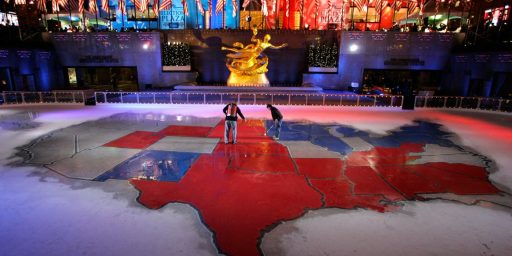

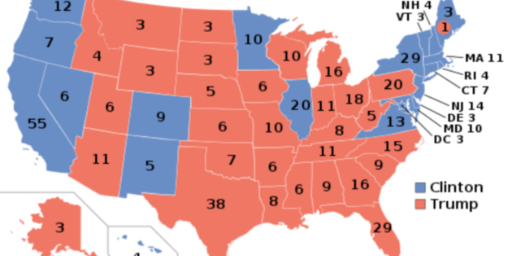
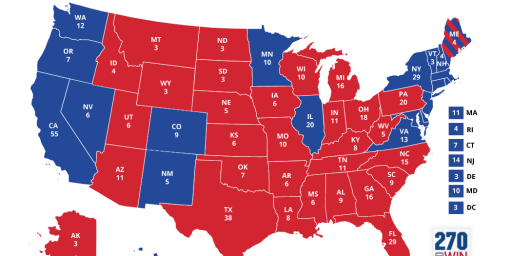
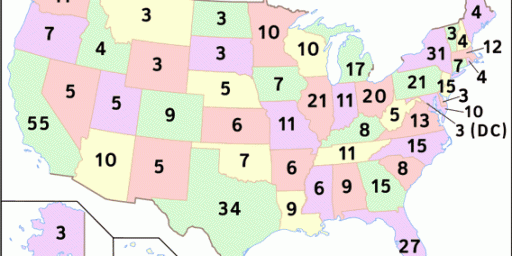
What are the chances that Mike Pense (or Mike Dense as he was sometimes called) actually wrote this op-ed? Probably about the same as me making an NBA roster (63 year old, skinny, 6′ 2″‘ white guy).
James, you are a little more solicitous to the constitutional prong of Pence’s op-ed than it deserves, but hopefully that will help to dispel some of the misconceptions the occasional person mistaken in good faith.
@senyordave:
Slim to none, I’d say. But to be fair, the vast majority of politicians have their op-eds and speeches written by people hired to write things for them.
@CSK: Agreed, but I would guess that if Barack Obama or Mitt Romney puts out an op-ed in their name they would at least understand the content. With Pense I don’t believe that would be the case.
@senyordave: @CSK: @senyordave: While neither Pence nor most senior people actually write their own speeches and op-eds and Pence is not nearly as bright as Obama or Romney, the fact of the matter is that he’s an Indiana Law grad and former Congressman, Governor, and VP. He has the education and experience to know better.
@TJ: I initially dismissed the Constitutional prong as sheer dumbassery but there’s more to it than meets the eye. But, yes, as an argument for risible false equivalency, it perhaps takes up too much of the post.
Of course, “busting” the filibuster would be necessary for the Senate to formal debate these provisions. Filibuster Die Hards won’t even require the prolonged speech.
First, it’s a given that Republicans would charge a Dem voting rights bill is equivalent to an R attempt to overturn an election. I’m not a racist, you’re the racist. I’m not trying to grab power, you’re the power grabber. Absolutely standard. People say politics is like junior high school. For GOPs it’s often like a grade school playground.
Second, much of TFG’s autogolpe plan depended on state legislatures overturning a few election results. There were, IIRC, hints from a couple of Justices that they saw state level control as sufficiently absolute to allow it. They’re trying to cement such power in a few states. Of course Dense’s speech writers will support state lege power preparatory to the next attempt.
Pence went to my high school. Average student. He spent as much or more time as a talk radio host as a lawyer. This is mostly about his retaining political viability, or trying to do so.
Steve
I wonder which part of the Democrats’ evil plan is equivalent to the calls to hang Mike Pence.
I mentioned a defunct Mexican airline called Aviacsa a few days ago, which was ordered to suspend operations until it paid what it owed the government for aeronautical services.
What I didn’t mention is the airline went to court to obtain a stay on that ruling, so it could keep flying, so it could earn the money to pay its debts. A financial analyst on a new radio network called this action something like “utter contempt for the rule of law.”
Consider, going through legal channels as provided by law to obtain a judgment from a court is contempt for the rule of law?
Pence is arguing something along these lines.
@James Joyner: yes, there is a little more than I first thought. However, the counterarguments from the Constitutional text, structure, and tradition (to allow charity to that portion of the legal analyst community) resemble nothing so much as a sledgehammer looming above a peanut.
Perhaps the Capitol Police should have just let the leopards eat his face.
@wr: I’m beginning to think that was one of the sanest parts of Jan 6th.
@wr: Now that Im embedded and live amongst these people Monday-Friday (I get back to real Florida almost every weekend.) I can tell you that this is not the calculus these people will make.
They are convinced 1 of are 2 Dystopian futures that are inevitable. The bet is which dystopian future offers THEM the best opportunity to pursue happiness. They will roll the dice with the right mob and associated dystopian society every time. This is also why they whatabout endlessly have have no sense of fairness. Because whatever little indiscretions are created by their tribe in the name of preventing a left mob dystopia—its PALES in comparison to actually living in a leftist dystopia.
@wr: Had the crowd gotten to him, I think the country might have been better off. There’s no way to minimize the sitting Vice President being beaten by an angry crowd that stormed the Capitol.
It’s like the Y2K computer bug — if you stop it from doing significant damage, people will assume it was no big deal.
I doubt they would have hung him.
@Jim Brown 32: I heard someone comment last night that the Afghans were crazy to not back the U.S. forces against the Taliban, that they were, and would be, better off occupied by us. Which is entirely true, but ignores the age old fact that people will fight to the death for the right to be oppressed by their own kind. You are correct that the GOP base see themselves as in a fight against oppression by the “other”. The tragedy is that GOPs and FOX have made them very confused about who is us v them and what is oppression.
Paraphrasing Churchill, never have so many been so angry about so little.
@gVOR08: Afghans have spent centuries demonstrating that they will reject any central government not controlled by their tribe. We were fools to think we could change that.
@Gustopher:
Perhaps they would have hanged Pence. Perhaps not.
But even the sight of Pence being dragged off and beaten bloody would not convince MAGA World at this point that the perpetrators were anything but Antifa/BLM/FBI plants. That’s their story and they’re sticking to it.
@CSK: There’s the hard MAGA, the soft MAGA, and the fellow travelers. It would have split the fellow travelers off and made the soft MAGA pick a side.
If the 9/11 hijackers were arrested before they got onto the airplanes, would anyone remember it? No. You need the violent outcome to change minds, for better or worse.
(And in the case of 9/11, minds were changed for the worse)